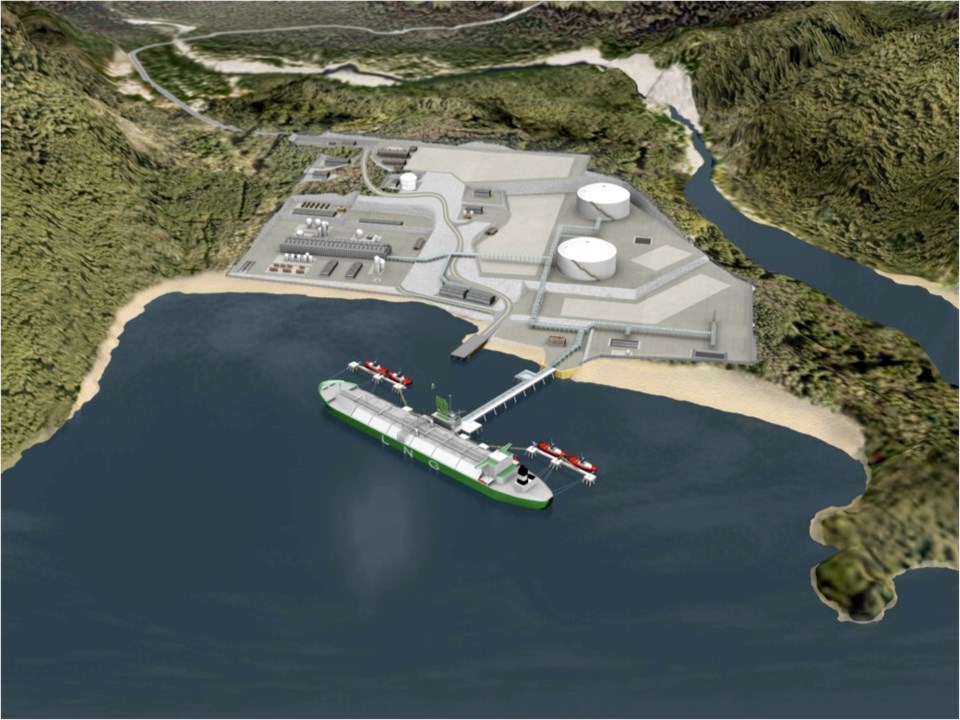 It’s getting harder to stay pessimistic about the prospects for a liquefied natural gas future in B.C.
It’s getting harder to stay pessimistic about the prospects for a liquefied natural gas future in B.C.
People are still managing that, but it’s taking a bit more effort. The B.C. Liberals have over-sold the potential of LNG to the point where a skeptical backlash was inevitable. So on any given day, there are experts explaining how global markets, geopolitical developments or provincial mismanagement are going to sink the concept.
Maybe some combination of factors in those areas could still rise up and stall the audacious idea.
But last week’s developments make you wonder. The lead proponent in the long lineup of companies seriously interested in the overall concept is now close enough to fully committing to a $36-billion project that betting against it at this point looks risky.
Pacific NorthWest LNG rather quietly let it be known last week that “the required technical and commercial components of the project have been satisfied.”
The technical components refer to all the elements that have occupied government — the emission standards, the tax regime, labour arrangements and a hundred other aspects. There’s been so much local attention on them that it overshadows the vital commercial side. The company is convinced it can make money on the venture over the long haul. It has deals to sell B.C. natural gas in Asia into the medium-term future. All the numbers work from a business point of view.
So the Petronas-led consortium has resolved to move forward with a positive final investment decision, subject to two conditions.
It’s a contradiction in terms to discuss a conditional final investment decision. If there are conditions, then it’s not final.
But the semantics have to do with the timing of the last steps in the approval process. It looks as if the five owners of Pacific NorthWest (Petronas, Sinopec, JAPEX, Indian Oil Corp. and Petroleum Brunei) are ready to put their money down and push the green light.
Representatives from each spent last week in a “virtual document room” in Vancouver poring over every detail before announcing the conditional yes.
Of the two conditions the firm listed, only one is problematic. Pacific NorthWest LNG wants to see the project-development agreement that governs the proposal passed through the legislature. That’s already been promised and is virtually assured. MLAs are likely to return to Victoria in three weeks to make it happen.
The other wrinkle is a federal environmental approval, which is less certain, but still conceivable. That process has stalled a few times over specific salmon habitat concerns.
That’s also the main point in another arena that wasn’t listed as a condition, but is still critically important. The nearest First Nation to the actual plant — the Lax Kw’alaams Band — looks to be opposed to the siting at this point, despite a huge benefits package on the table.
Interpretations vary, but the band says it is open to LNG development, just not at Flores Bank on the Skeena estuary.
The company said “constructive engagement” continues and the government is also immersed in finding a way around that issue.
One way to measure the likelihood of it going ahead is to check if other LNG proposals around the world have gotten this far and failed. Natural Gas Development Minister Rich Coleman said he’s not aware of any.
Some proposals have stalled because further exploration revealed they didn’t have the gas supply that was expected. B.C.’s supply is confirmed to be vast.
Coleman said: “It would only be derailed, I suppose, if there was something in the environmental assessment that made the project impossible. But in actual fact, all the research that’s been done and the stuff that’s been submitted in the last little while … I’m satisfied they can get there.”
On the commercial side, some projects got parked in the recent past when the price of oil dived. And Petronas deferred the project last fall, in what turned out to be a negotiating ploy.
From a standing start four years ago, proponents have reached the cusp of making the biggest private investment in Canadian history.
In both the optimist and pessimist camps, breath is bated.



